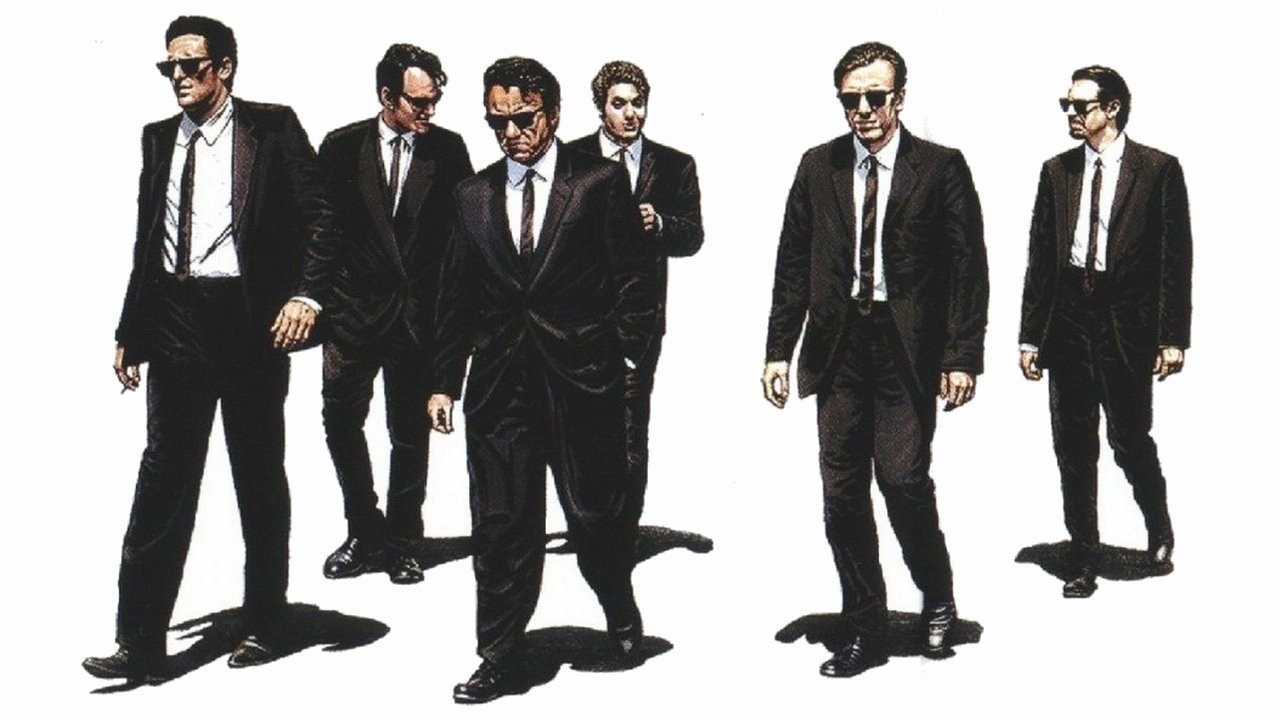
“We are a team named after Sakharov and we made a bomb” - with this phrase, by tradition, we begin all our performances at hackathons. For two years, we have gone from participating in 20 Russian and international hackathons, in 15 of which we won prizes, including Junction and Digital Breakthrough, to our own company for developing chat bots HaClever.
“Our first hackathon is the Science Guide for Gazprom. We won it and thought - it’s cool, let's continue. ”
Our acquaintance can be called truly fateful. For all the time, many people have visited our ranks, but the core of the team has always remained unchanged - Roma, Dima and Emil. We met Dima during one of the conferences on AI, which I helped organize. For some reason, at one of the coffee breaks, I chose for a long time what table to get up at, as a result, there were three of us behind him - Dima Ichetkin and another guy. It was about microelectronics, where Dima persistently talked about 5-nanometer chip manufacturing technology. The third guy could not stand the pressure and left, but I liked his grip and then we quickly found a common language. Within a couple of weeks, we went together to our first hackathon in St. Petersburg, where we won a prize for the best technological solution, having assembled a portable camera on a platform with computer vision. True, I had to tinker with it, we did not think about the compatibility of the camera with our platform, we even tried to contact the only guy from China who had at least some kind of review on this topic, but he did not answer - as a result, two days of reading the documentation, 100,500 wires and all earned as it should. The hackathon, by the way, was cool organized, there was a shower with music and sleep capsules on the court.
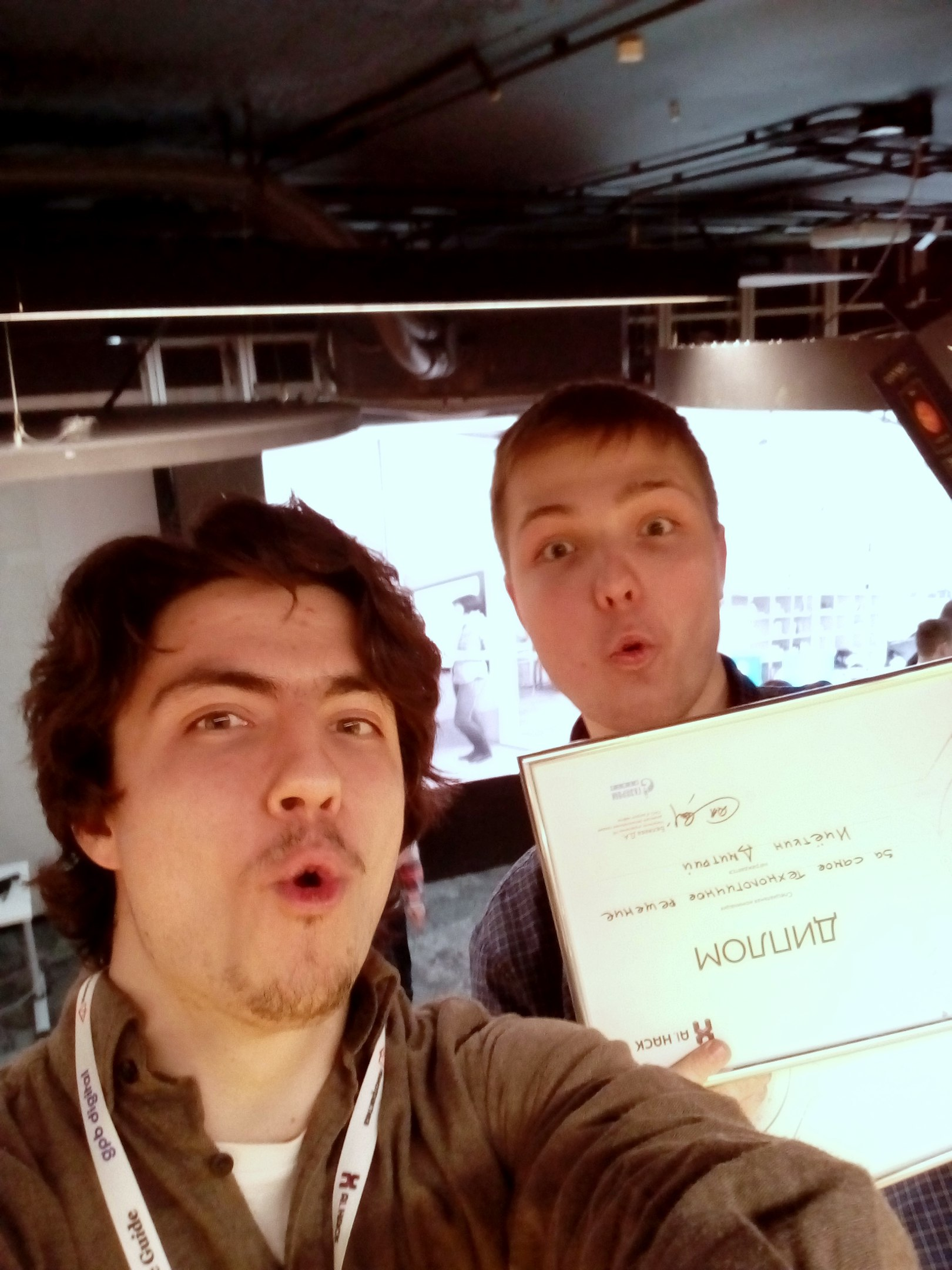
“Together we went through 20 Russian and international hackathons, each brought us their own unique experience and networking”
Following the hack in St. Petersburg, they tried to build on the success of continuing the same hackathon in Moscow. They had a great time working with the voice assistant Yandex Alice, who became open for development just a day before the hackathon. It didn’t work out, but the mastered technology has brought us victories more than once. Classic hackathon stack: chat bots, voice assistants, computer vision and minimal frontend knowledge.
Since then, we have gone through 20 Russian and international hackathons - we went to Junction in Helsinki, StartupBootcamp HealthHack in Berlin, and to the Digital Breakthrough. Each gave us a unique experience: introduced to new technologies, made it possible to find out the tasks of the real market, understand what we would be interested in doing, rallied as a team and taught us to work in a stressful situation, when you need to do specific tasks in a short time.
One of the coolest experiences is participating in the Junction in Helsinki, Europe's largest hackathon. He was remembered by a huge number of partner companies and it seemed that choosing the right track was already a mini-victory. Three days passed quickly: we had time to sing in karaoke, and talk with companies, and they dragged 3rd place in the “Blockchain” track! Already knew how to do it.
Our main victory happened at the largest digital hackathon in the world “Digital Breakthrough” (included in the Guinness Book of Records) in Kazan - we won the track from the Association of Volunteer Centers, and I also performed at the opening.
“We try to enjoy the process, come up with crazy things and have fun, get to know the participants and organizers”
Usually we don’t specially prepare for hackathons, we are not one of those who come with a ready-made solution. We can review the maximum on the eve of the performances of Ilon Mask for mood and inspiration, and sometimes we read about the task area on the hackathon. We take a standard set with us - a laptop, a sleeping bag, rugs, a fresh shirt for a performance. After several hard hacks, when we had to finish working tasks in parallel with the project (HaClever and my guys develop chatbots with our guys), we try to unload and free the hackathon days from the rest. During the hackathon, we formed a strong team and the first customers appeared - this was the beginning for our company to develop intelligent assistants with technologies that we have mastered.
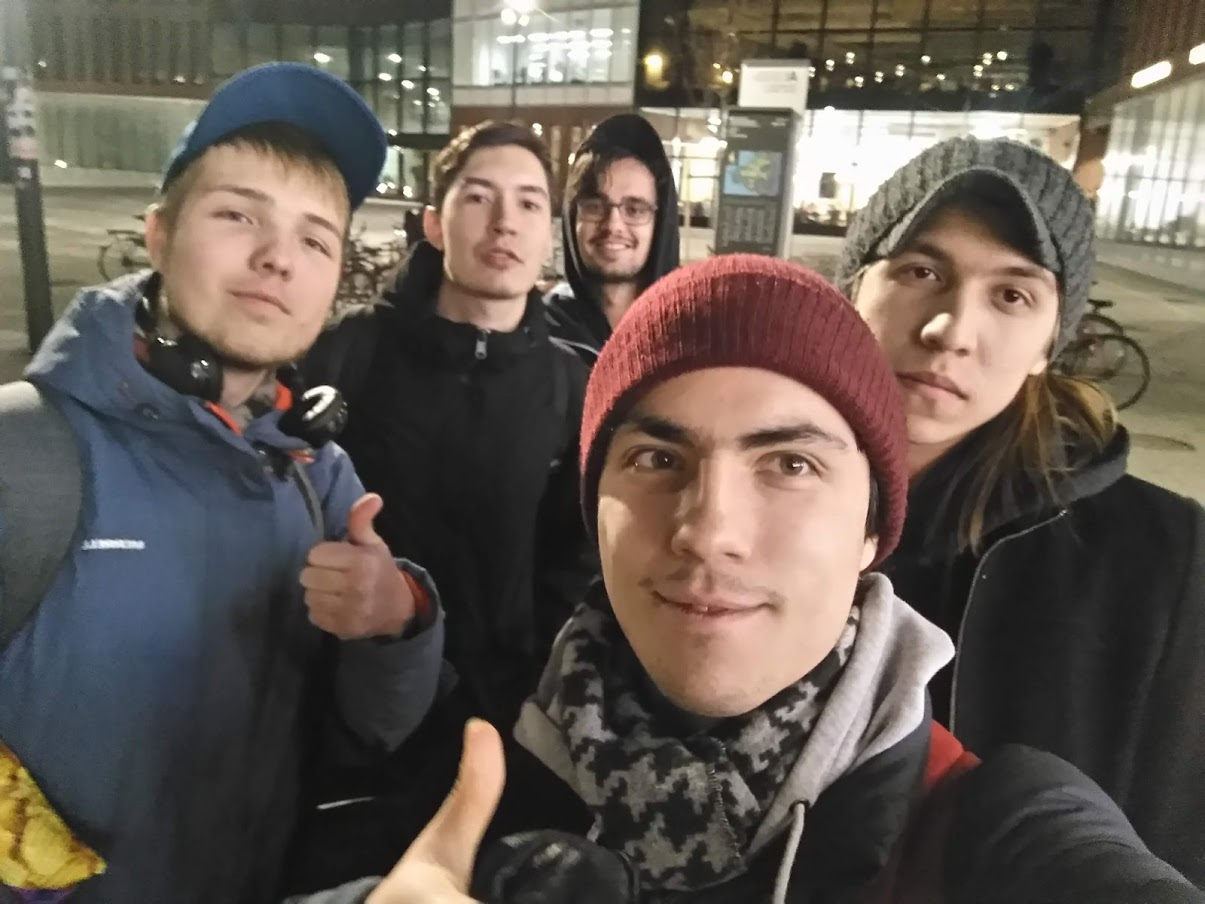
We try to enjoy the process, come up with cool things and have fun, get to know the participants and organizers. The scheme of work on a two-day hackathon is usually as follows. The first day is testing hypotheses with experts and preparing basic things, such as server deployment, industry research, to understand that you are doing the right thing, and not reinvent the wheel. Everything goes smoothly, on the first night we can sleep 6-9 hours. The second day is already tougher, debugging begins, preparation for the presentation, we sleep 3-6 hours, or sometimes not at all, if we do not have time. Our life hack to maintain productivity is to work in shifts, as in the army, this optimally saves energy and has time to do everything.
Despite the competition, the hackathon is primarily a party of like-minded people, so if possible, the guys prompt and help each other. At the IoT hackathon in Skoltech from Sberbank and Huawei, we did not receive a letter with access to the Ocean Connect platform that needed to be used - a guy who had an access key shared with us, and we were able to work through his account. In the end, it helped us win a special nomination for using this platform, so the guy has respect again. The key factor, probably, was communication with the Chinese delegation of Huawei throughout the hackathon, they explained to us what we did with the help of a Google translator, English did not save. We ourselves often give advice, help set up something. Of course, we don’t share secrets - how the code is written and what crutches it rests on, although often even technical experts understand that crutches can not be avoided in two days, and they relate to them normally.
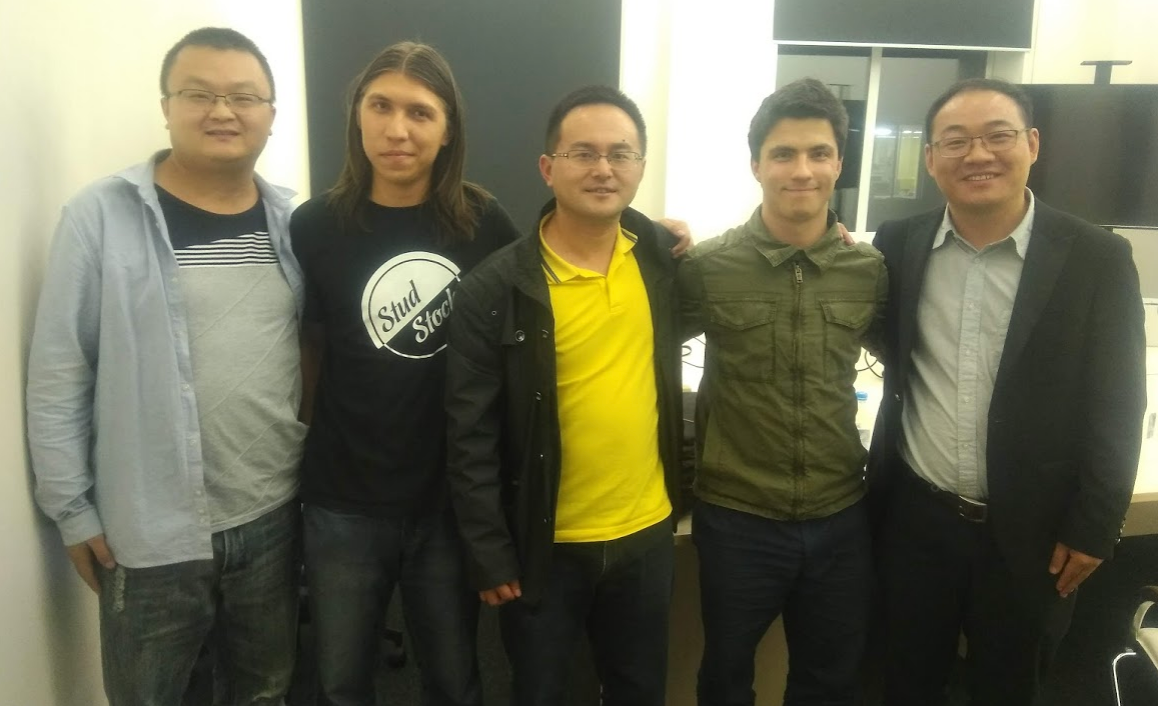
“Any hack is about a game of survival and a feeling of overcoming”
Fakapy is normal
I probably shouldn't talk about this, but the fakap happens all the time. Many of them are very fun to remember. Once Dima fell asleep right before the presentation (and he usually helps me with the launch of the prototype on defense), and no one could find him. It also happens that the wrong version is turned on, or the preset is broken, or nothing works at all - the main thing is to maintain confidence and find the right words. In such a case, it’s good to record a product demo and, if possible, show the judges a prototype until the defense.
Team size matters
The most irrational decision we made at Junction. For some reason, we split into two teams. One part solved the problem on the blockchain, and the team where I was could not decide on the track for a long time - it was almost impossible to stop on only one of the 40 problems. And choosing the right track is the key to success and a whole science. The night before the deadline, we decided to go to the Finnish sauna, and then to sing Tsoi in karaoke - the program of Russian tourists worked 100%. It seems that these videos are still somewhere in the chat rooms. But we still won the hackathon - the half that solved the cryptographic problem took the 3rd place, only the Chinese were ahead of us (it seems they were a whole faculty) and the guys who came up with a ready-made solution.
With our mentor Ilonyuk
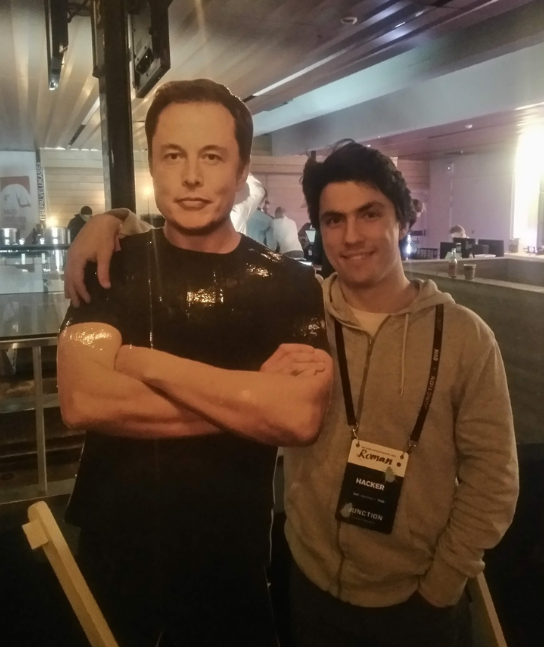
One team is good - four is better
Once we dragged 15 trainees with us to the hackathon and broke into 4 teams in order to drag all the nominations. As a result, I had to take care not only of myself, but also to look after the students so that they would not mow. It was complete chaos and madness, but a lot of fun.
In general, any hack is about a game of survival and a feeling of overcoming. Almost all 48 hours, something does not work for you, it falls and falls off. You close one jamb, in its place two new ones - like the heads of a hydra. And you fight it, come up with sophisticated crutches. Then at home you look at the code with a fresh mind and think: what was it all about? How did it even work? From hack to hack progressed: the same things took less time and crutches became less. At the finale of the Digital Breakthrough, all our knowledge came in handy, we worked without the right to make a mistake. We made a website, trained a neural network for auto-generating video, connected aggregation with Instagram and thought up many more cool features.
“Hackathons are experience, not the end point of success."
If you successfully performed on a hack, then you are more likely to be scammed by someone of their organizing companies, or they will offer to finish the solution that you presented with your team. For all the time they received a lot of offers, even if they did not win, they still noticed us and invited us to themselves, but we are burning ideas with our company and are not leaving.
At the hackathon in Skoltech from Akado Telecom we took the second place and after the victory honestly went to present the finalized project. We then made a system for automating answers to user questions on social networks - VKontakte, Facebook and Telegram. Communication took place in two stages. The first time we arrived and told again what we did, and after that we were asked to prepare a full proposal. Two weeks preparing a presentation, calculated a business model, thought out the stages of implementation. But when they spoke again, it turned out that the download to call centers was not so huge and there was no need to implement the system. In any case, for us it was a valuable experience in defending our project.
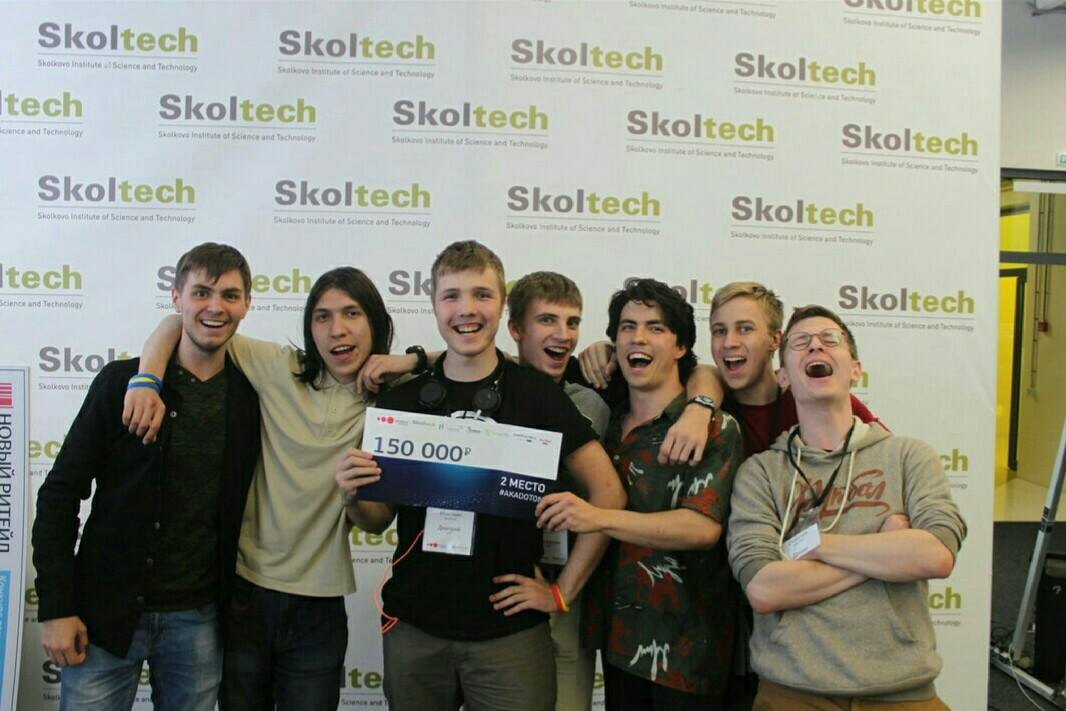
“Khaki is the coolest way to understand what you are interested in doing and your role in the team”
Khaki is the coolest way to understand what you are interested in doing and your role in the team. That is why we are not afraid to solve new problems - so we went to two GameNode hackathons, for games and blockchain. The general level of knowledge of these topics at the time of the start was 0. But we took on a team of people who fumbled, pumped and took both hacks.
At the first, they created a training monopoly on writing smart contracts: all actions in the Monopoly - buying, fines, events - are performed using smart contracts written by the player. To move forward, you need to write the code correctly. With each new step, the task becomes more complicated. It turned out interesting and informative.
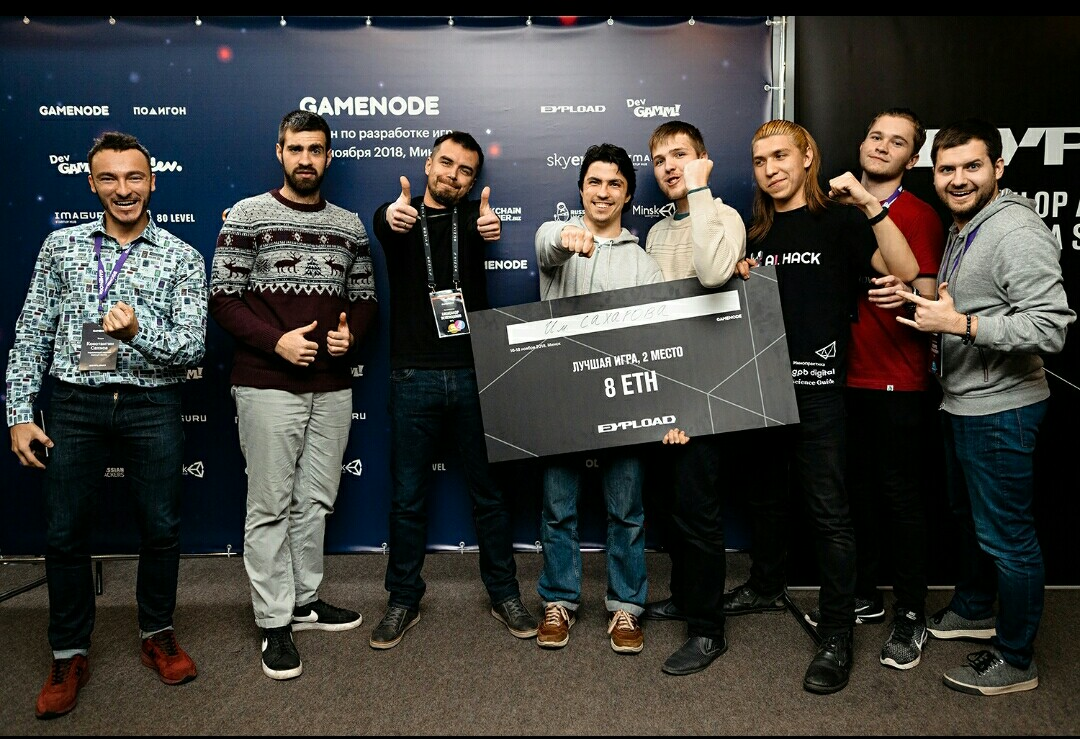
And on the second, “8 Bit Go” is a mobile game that synchronizes with the player’s location in the real world, and the player performs tasks from real people, receiving bonuses for this. The game solves the problem of controlling processes that are difficult to monitor. Have all the goods posted on the shelves? Have you really made a road marking in the right place, installed signs, laid asphalt?
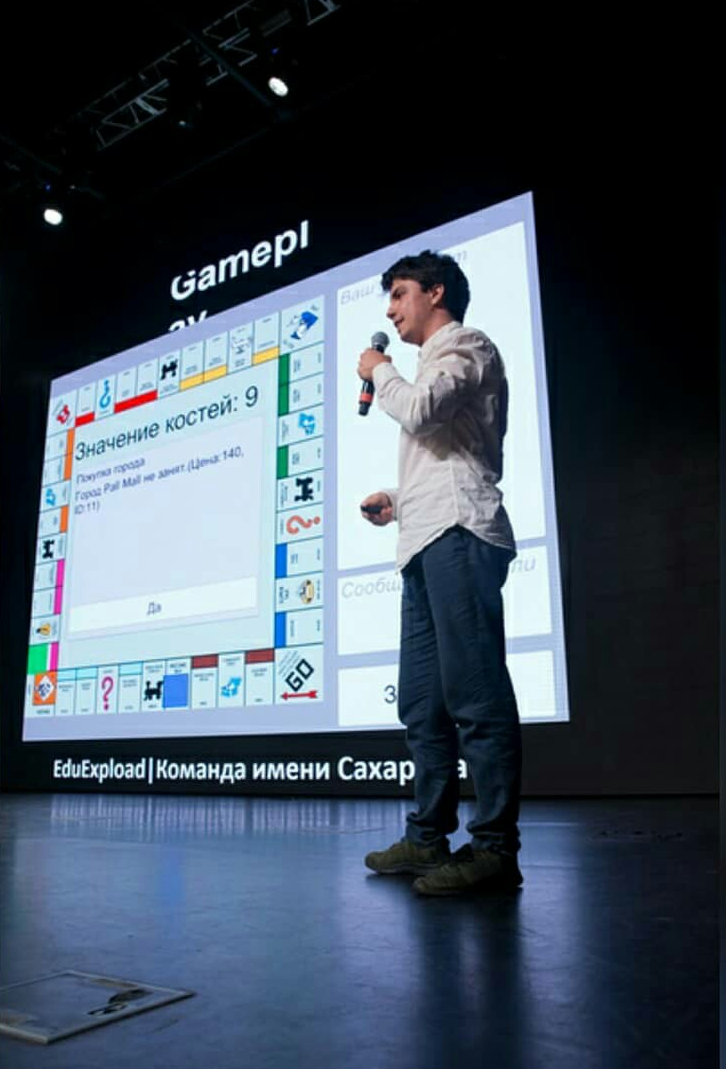
An important victory was Hack.Moscow, where they made a universal assistant for doctors. This is a chat bot that monitors the user taking pills. Using computer vision, you can send a photo of a blister of tablets so that the doctor can control the dosage and consumption of drugs. In addition, they integrated their solution with Amazon Alexa, which suggests a drug plan using voice skill.
“Always get ready for a presentation”
To be able to talk about yourself is a skill that any person needs. Whatever the idea, it is important to talk about it in an accessible and entertaining way.
A performance is a show; nobody needs boring stories. But at the same time, it is important to maintain a balance between the essence of the project and a fun performance that you will want to listen to, even if you are the fortieth speaker today.
It is advisable to drive out a speech many times before defense, and start making a presentation in advance. It is especially good if you have a designer who will help to make beautiful.

How we prepare for defense
- We often perform together - usually Dima or Emil comes out with me, they help to launch the prototype and answer questions.
- We think over the submission. We like Musk, so we often use his photographs, ascribe words to him about our project, etc. But our main feature is the name. Why "Sakharov Team"? Because we made a bomb (at the hackathon in Belarus they said that the bulb, everyone entered).
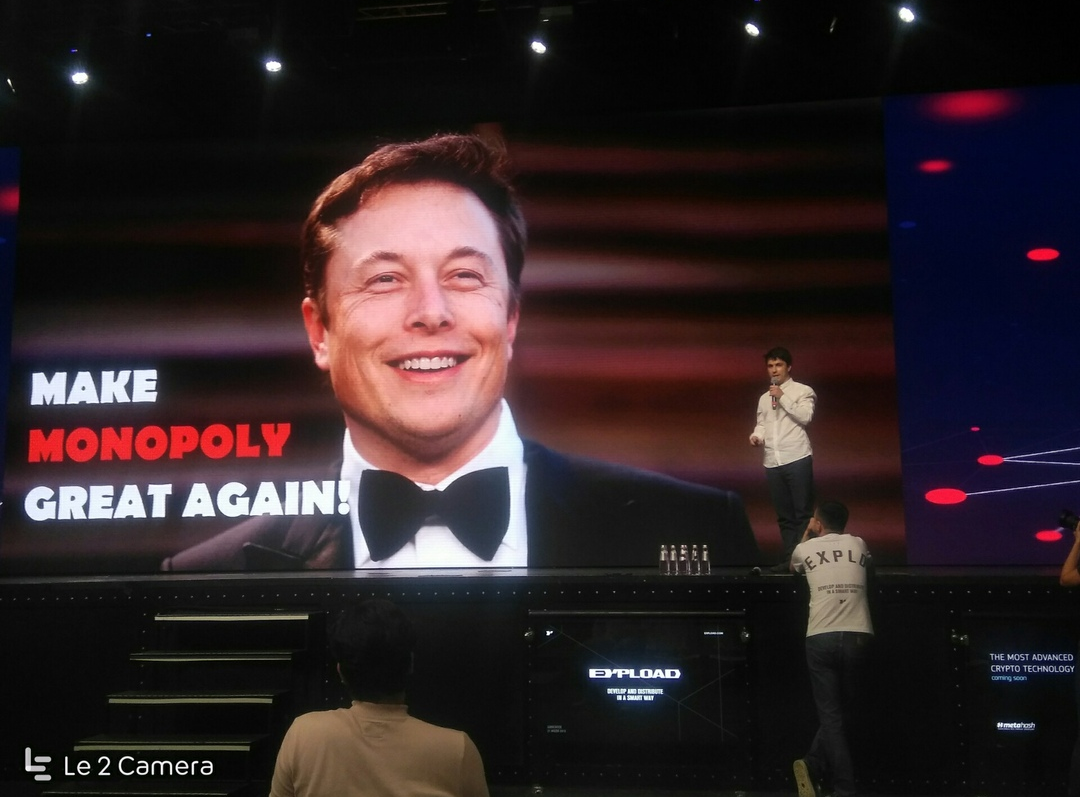
- The mistake of many not only hackers, but also startups is too much emphasis on technology , because it is not the feature itself that is important, but what problem it solves. Despite the obviousness of this fact, few people talk about it during the defense, more often you can hear “we made an application using all the AI algorithms that we know”. Therefore, we focus specifically on the task and do it creatively.
- Delivered, clear speech on defense significantly increases the chances of winning . So we rehearse, rehearse and rehearse again. At the first GameNode, I drove a speech with Dima on the phone - he fell ill and went home, but even in this state they continued to work.
“Communicate with experts as much as possible”
We have a practice - to try as much as possible, at least three times to communicate with experts. Once every day and separately before protection. First, with them you test hypotheses; secondly, that’s how they remember your project and understand it. It is difficult to objectively and worthily evaluate what you got there in five minutes of protection. And thirdly, this is dating. We still keep in touch with many, we consult on various topics and are just friends.
Hackathons played a big role and helped us found the company. Participation in them is 100% useful for the development of the technological and startup ecosystem, and there are practically no restrictions on age and skills, because both schoolchildren and experienced professionals can participate. In general, we have gained a good pace and are trying to seize the moment, but the main victories are yet to come!